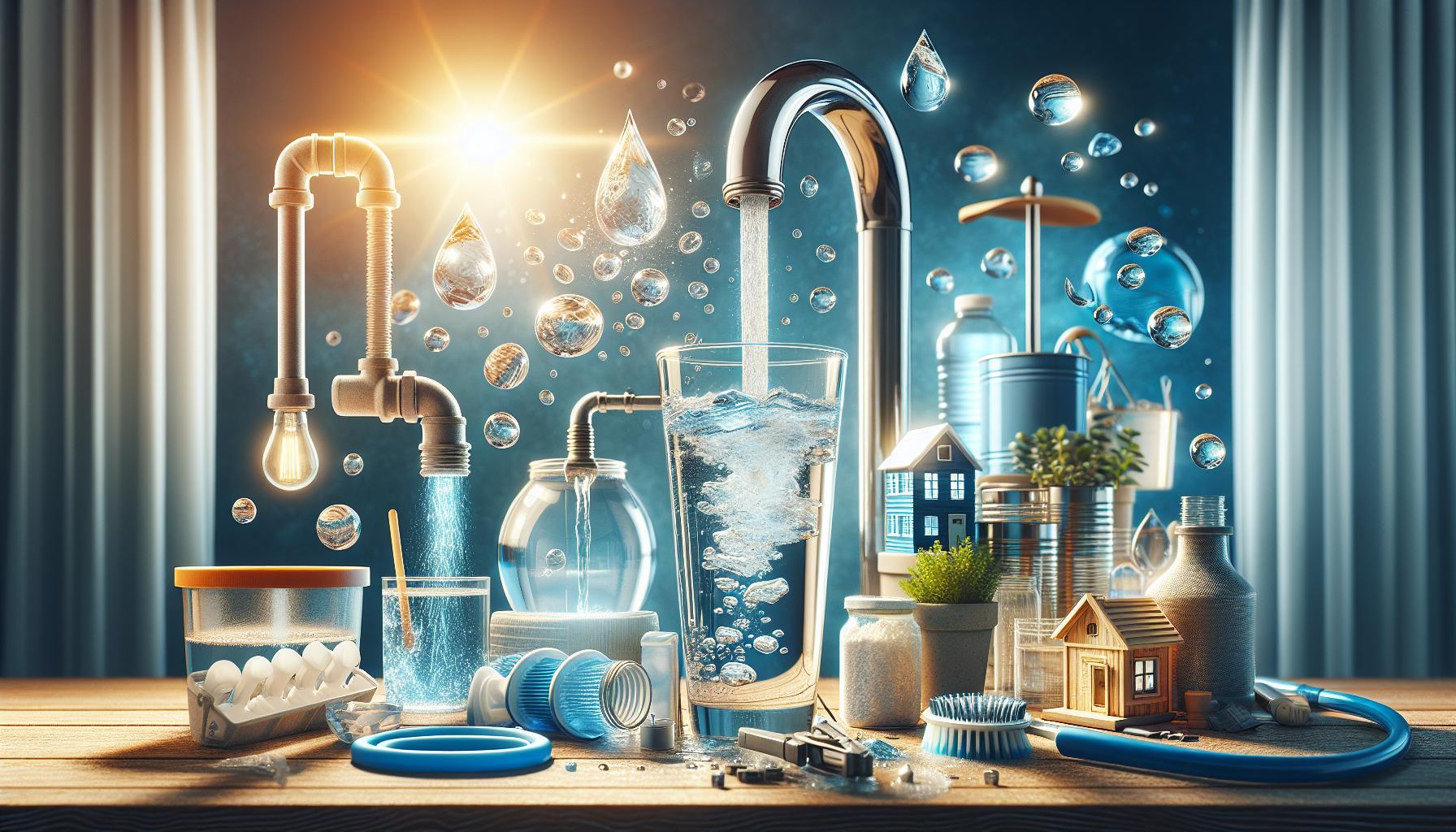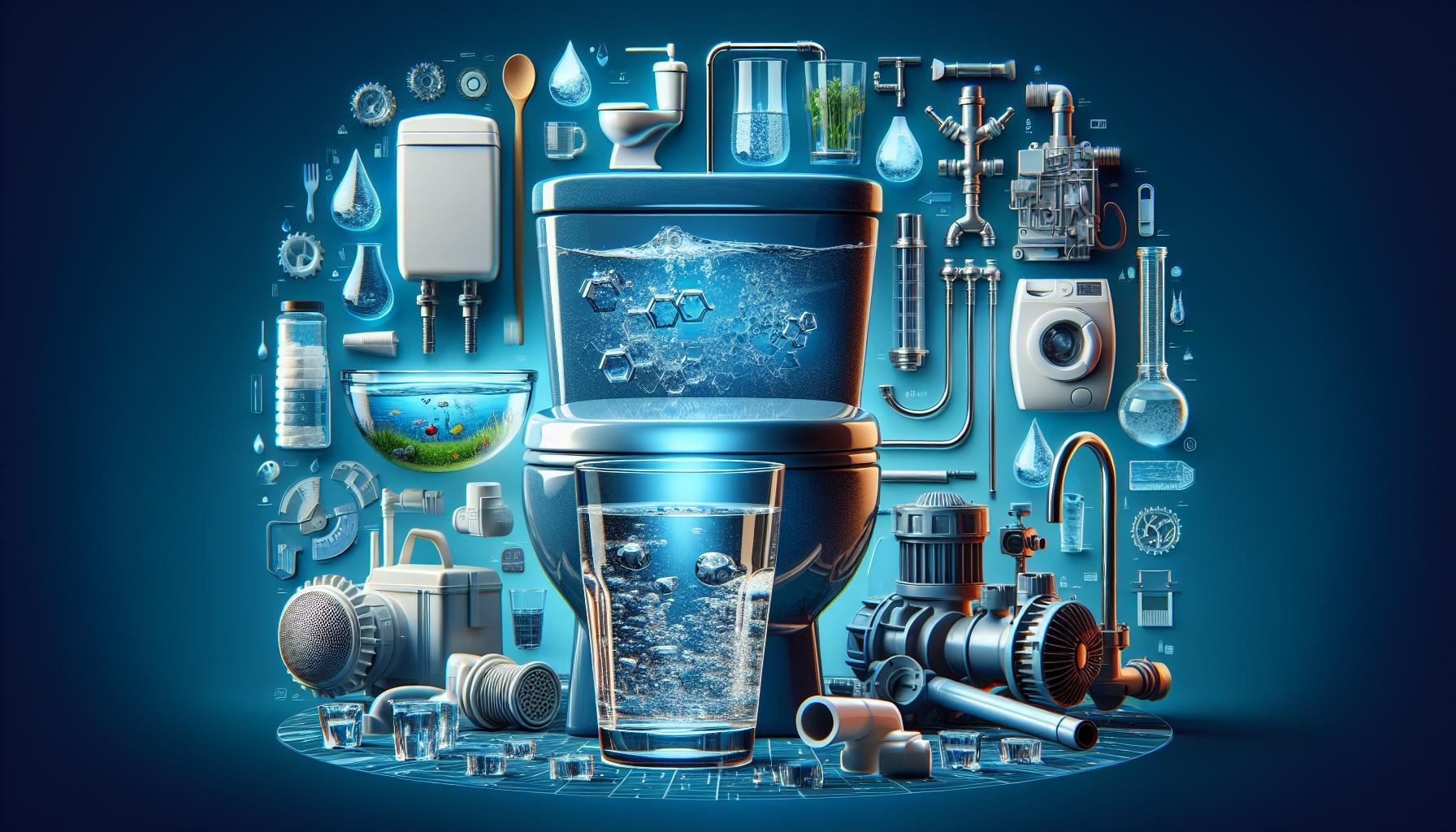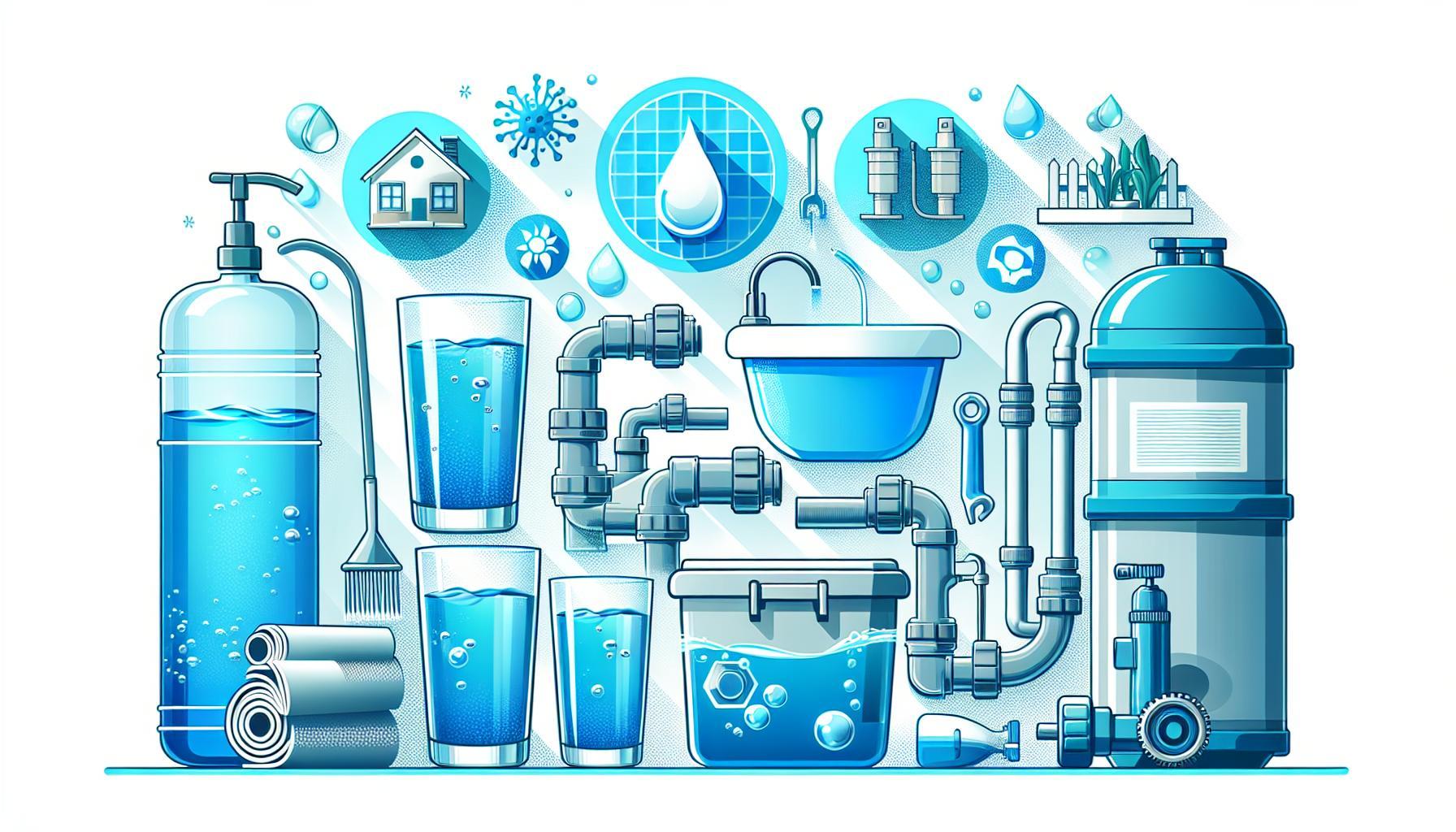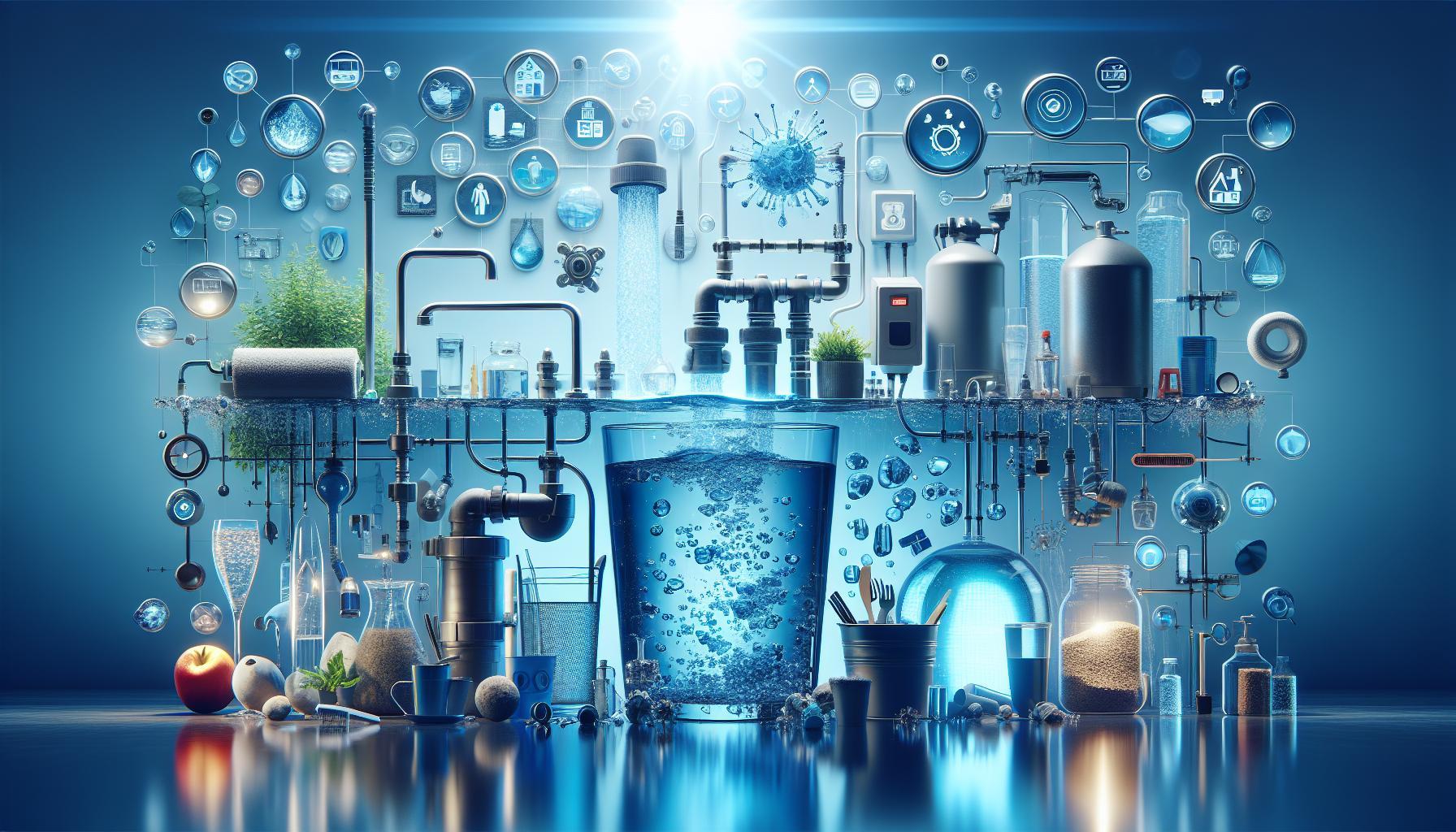As Johannesburg grapples with a critical water shortage, residents face the pressing question: how can we ensure sustainable water use? This issue is not just about conservation—it’s a matter of survival. In this article, we explore practical tips and emergency plans to help you navigate this essential challenge and protect our precious water resources.
Understanding Johannesburg’s Water Crisis: Causes and Impacts
Many residents of Johannesburg may be unaware that the city has faced significant challenges regarding its water supply, with the water crisis impacting millions. As one of South Africa’s largest urban centers, Johannesburg relies heavily on a delicate infrastructure to provide its inhabitants with clean drinking water. Several factors contribute to the ongoing water shortages in this bustling metropolis, each intertwining to create a complex web of challenges.
Key Causes of the Water Shortage
Several underlying causes exacerbate Johannesburg’s water crisis, including:
- Increased Demand: Urbanization and a growing population put immense pressure on existing water resources. As more people flock to the city for better opportunities, the demand for water continues to rise.
- Climate Change: Changing weather patterns, particularly prolonged drought periods, have reduced water levels in reservoirs and dams, leading to significant shortages.
- Infrastructure Challenges: Aging and poorly maintained water infrastructure result in leaks and inefficiencies. Estimates suggest that a significant percentage of the city’s water is lost before it even reaches consumers.
- Poor Water Management: Ineffective management strategies can lead to imbalances in supply and demand, contributing to unsustainable practices that further strain the available resources.
Impacts on Daily Life
The impact of the water shortage in Johannesburg is profound, influencing various facets of daily life:
- Health Concerns: Limited access to clean water poses health risks, increasing the likelihood of waterborne diseases, particularly among vulnerable populations.
- Economic Strain: Water shortages can stifle economic growth, as businesses rely on a stable water supply for operations. This can lead to job losses, reduced productivity, and ultimately, a weaker economy.
- Social Tension: As water becomes scarcer, competition for this vital resource can lead to conflict between communities, affecting social cohesion.
Understanding these challenges is crucial for residents and policymakers alike, as proactive measures can help mitigate the ongoing crisis. To address the issues effectively, it is essential to implement sustainable water management practices, invest in infrastructure, and encourage community engagement in conservation efforts. Engaging with Johannesburg Water Shortage: Conservation Tips and Emergency Plans not only sheds light on the crisis but also offers actionable advice to help the community navigate these challenging times.
Everyday Water Conservation: Simple Steps You Can Take
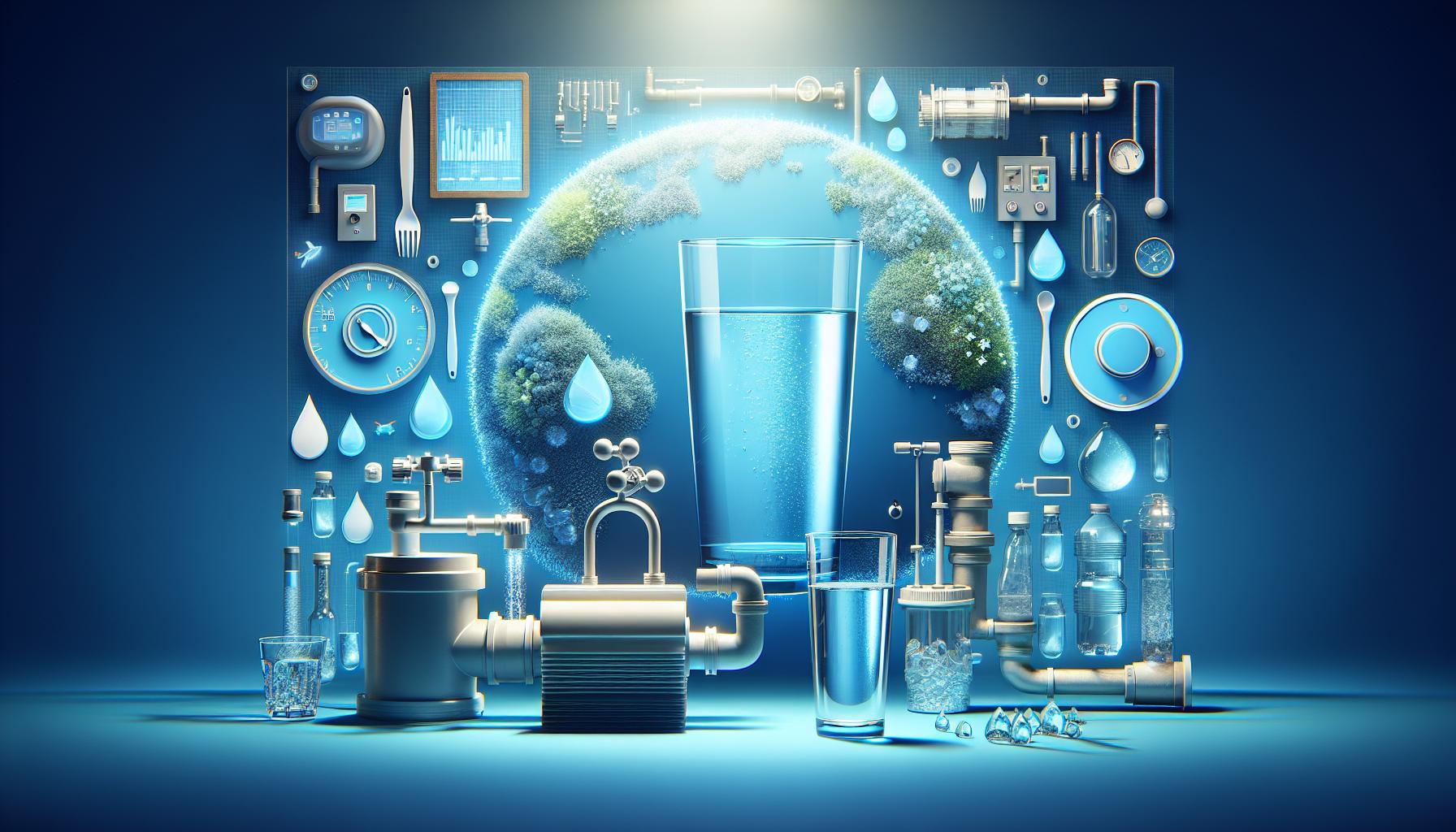
The reality of water scarcity is increasingly pressing, making it imperative for every individual to adopt conservation practices. While Johannesburg grapples with its ongoing water shortage, simple daily actions can significantly contribute to water saving efforts. Many people may underestimate the impact they can have; however, small changes in behavior can accumulate into substantial water savings over time.
Practical Steps for Everyday Savings
Embracing water conservation does not have to be an overwhelming task. Here are some practical steps anyone can take to reduce usage and contribute to broader efforts, particularly in the context of Johannesburg’s water crisis:
- Fix Leaks: A single dripping faucet can waste over 3,000 gallons of water a year. Regularly check for and repair leaks in your home.
- Shorten Showers: Limit showers to 5-10 minutes. Installing a low-flow showerhead can save even more.
- Turn Off the Tap: Don’t let the water run while brushing your teeth or shaving. This simple act can save several gallons per day.
- Use Efficient Appliances: Invest in water-efficient appliances, such as dishwashers and washing machines, which can significantly reduce water consumption.
- Rethink Dishwashing: Instead of running water continuously, fill a basin for washing dishes and use another for rinsing.
Water-Wise Gardening
For those with gardens, adapting landscaping practices can further help mitigate water scarcity. Here are some strategies:
- Native Plants: Choose drought-resistant native plants that require less water and are better suited to the local climate.
- Mulching: Apply mulch around plants to retain moisture, suppress weeds, and reduce the need for watering.
- Rainwater Harvesting: Set up a rain barrel system to collect rainwater for irrigation, benefiting both your garden and the water supply.
Community Involvement and Awareness
In addition to personal efforts, community engagement plays a crucial role in addressing the challenges posed by water shortages. Residents can participate in local conservation initiatives or educational programs that promote water-saving techniques. Sharing knowledge about the importance of water conservation can inspire others to make positive changes, amplifying the impact of individual efforts.
By adopting these simple yet effective water conservation strategies, residents can play a vital role in alleviating Johannesburg’s water shortage challenges, ensuring that this precious resource is preserved for future generations.
Building Your Emergency Water Supply: A Practical Guide
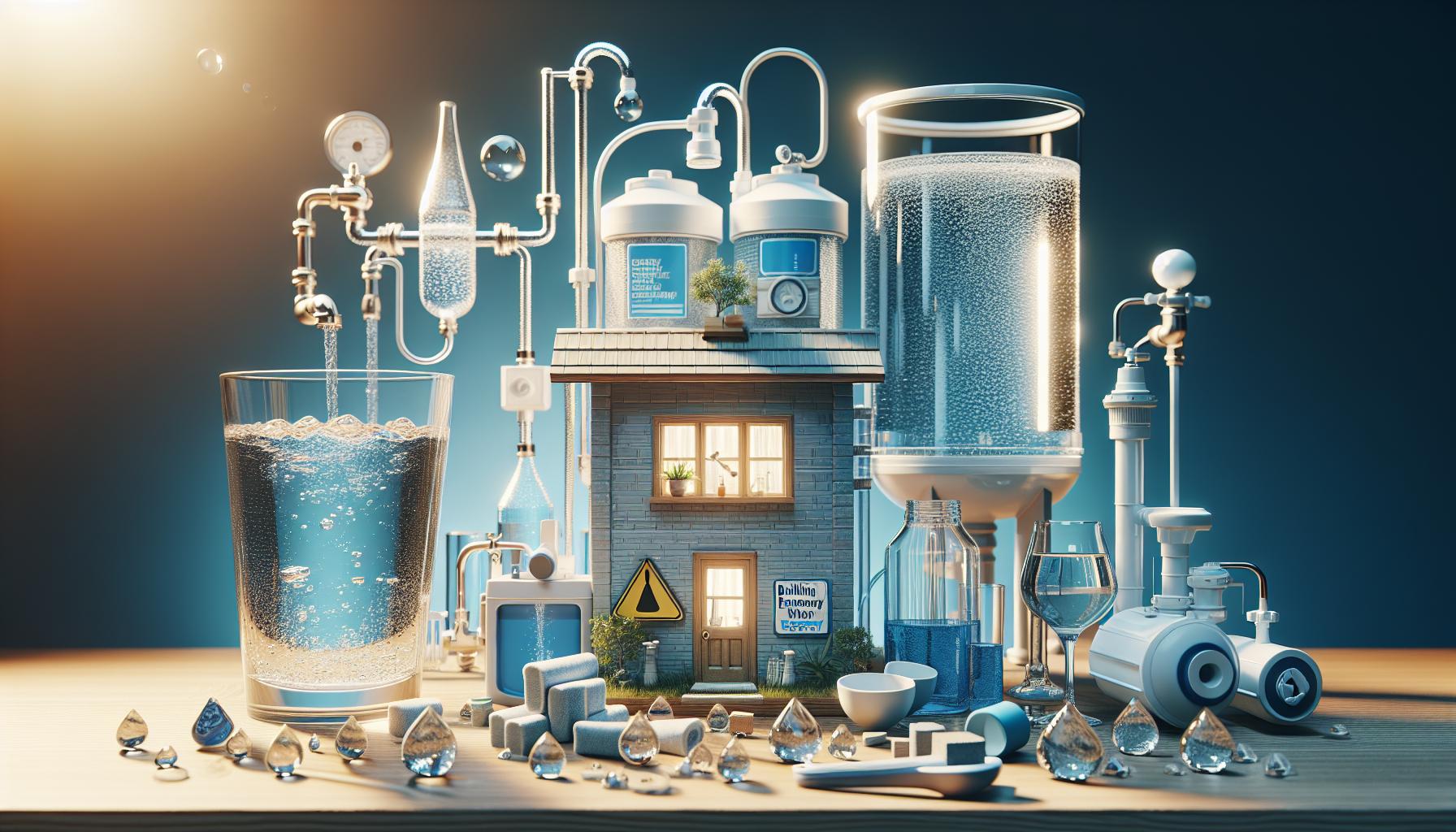
In the face of potential water shortages, particularly relevant in regions like Johannesburg, building a robust emergency water supply is crucial for ensuring access to safe drinking water when traditional resources fail. Knowing how to effectively store and manage water can make a substantial difference during emergencies caused by factors such as droughts, infrastructure breakdowns, or natural disasters.
Essential Steps for Creating Your Emergency Water Supply
Starting your emergency water supply entails understanding how much water you might need and how to store it properly. A general guideline suggests preparing at least one gallon of water per person per day, enough for at least three days. This can help cater to both drinking and essential hygiene needs. Here are some practical tips for setting up your supply:
- Select Proper Containers: Always use food-grade water storage containers. These can include commercially available water barrels or repurposed soda bottles, ensuring they are thoroughly cleaned before use.
- Avoid Contaminants: Store water in a cool, dark place away from chemicals, which can contaminate your supply. Knowing where to place these containers is as important as the containers themselves.
- Rotate Your Supply: Regularly check your stored water and replace it at least every six months to ensure it stays fresh and potable.
Water Treatment Techniques
In the unfortunate event that your water source is compromised, treating water before consumption is essential. Here are a few effective methods to purify water:
- Boiling: Boiling water for at least one minute kills most pathogens, making it one of the most effective purification methods.
- Use of Tablets or Drops: Water purification tablets or drops, usually containing chlorine or iodine, can be a practical solution for treating small amounts of water quickly.
- Filtration Systems: Investing in a portable water filter can provide a reliable means to clean water, particularly in emergencies where boiling isn’t an option.
Community Preparedness and Resources
Ensuring your individual preparedness is equally important as fostering community awareness. Engaging with local emergency management organizations can provide insights on effective community-level water conservation strategies. Not only can these groups offer resources on building your water supply, but they often provide vital information on how to respond collectively during water shortages.
| Action | Description |
|---|---|
| Assess Your Needs | Calculate daily water needs per person and prepare supplies accordingly. |
| Store Water Safely | Use appropriate containers and store in a safe environment. |
| Regular Maintenance | Rotate stored water every six months to ensure quality. |
| Join Local Initiatives | Participate in community efforts for shared resources and knowledge. |
By staying proactive and informed, communities can navigate the challenges posed by water shortages more effectively while ensuring the health and safety of all residents. The insights derived from understanding the ‘Johannesburg Water Shortage: Conservation Tips and Emergency Plans’ can serve as a strong foundation for building and maintaining your emergency water supply.
Creative Solutions for Water-Saving in Your Home and Garden
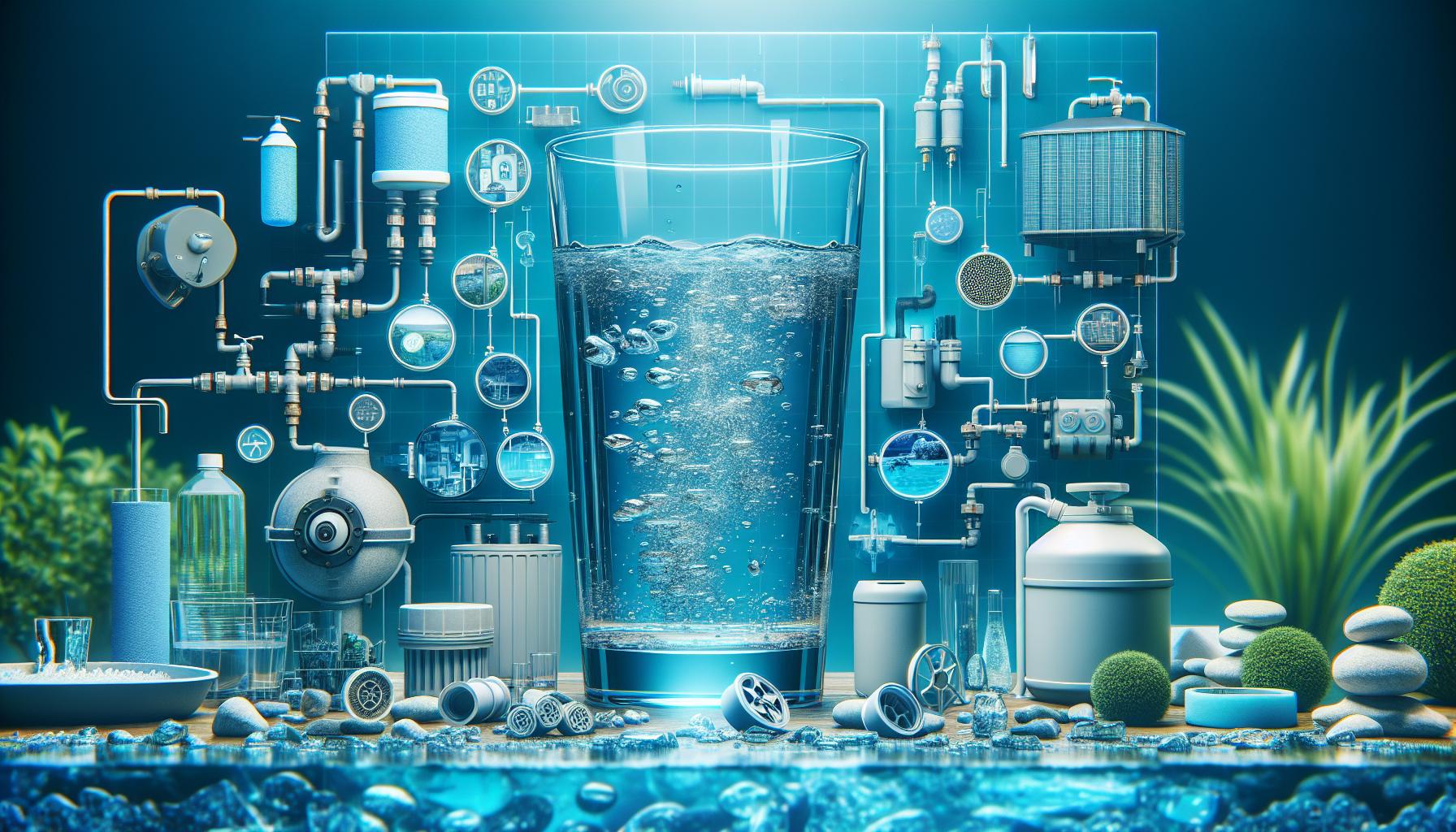
In light of the ongoing water scarcity issues in Johannesburg, it has become imperative for households and gardens to adopt innovative water-saving measures. Not only can these solutions help conserve the precious resource, but they can also lead to reduced utility bills and healthier plants. Embracing a proactive approach to water conservation can transform your daily routines and gardening practices into more sustainable habits.
Household Water-Saving Techniques
Simple modifications within your home can drastically reduce water usage. Consider implementing these strategies:
- Install Low-Flow Fixtures: Replace existing showerheads, faucets, and toilets with low-flow alternatives to cut down on water flow without sacrificing performance.
- Collect Rainwater: Set up a rain barrel under your downspouts to capture runoff during rainy periods. This collected water can be used for irrigation or to wash outdoor items.
- Shorten Shower Times: Encourage your family to limit showers to five minutes. Using a timer can make this challenge fun, and a quick shower significantly saves water.
- Only Run Full Loads: Whether it’s a dishwasher or washing machine, always run these appliances only with full loads to maximize water efficiency.
Garden Practices that Conserve Water
Creating a more drought-resistant garden can be both aesthetically pleasing and practical. Implement these eco-friendly gardening practices:
- Use Mulch: Applying a layer of organic mulch around plants can help retain moisture in the soil, reducing the need for frequent watering.
- Choose Native Plants: Native plants are adapted to local climate conditions and typically require less water than exotic species. Incorporate flora that thrives in the Johannesburg climate.
- Drip Irrigation Systems: Instead of traditional sprinklers, consider installing drip irrigation systems that deliver water directly to the roots of the plants, minimizing evaporation and runoff.
Emergency Water Plans
When faced with critical water shortages in Johannesburg, having a contingency plan is essential. The following strategies can ensure you’re prepared for any urgent water conservation efforts:
| Plan | Description |
|---|---|
| Water Rationing | Establish daily water limits for household usage. Track water consumption daily to stay within the set limits. |
| Community Engagement | Partner with neighbors to share resources and knowledge about efficient water use and gardening techniques. |
| Emergency Supplies | Stock up on bottled water and plan for an emergency supply of stored water for drinking and hygiene. |
With these creative solutions for conserving water in both your home and garden, you can contribute to the alleviation of the Johannesburg water crisis while fostering a sustainable lifestyle. Each small effort adds up, leading to significant changes in water conservation practices that benefit both the environment and your community.
Community Efforts: Join Local Initiatives for Water Conservation
Water scarcity is not just an environmental issue; it’s a community challenge that necessitates collective action. Local initiatives play a critical role in addressing the pressing problem of water shortages, especially in areas experiencing severe stress like Johannesburg. By coming together and participating in community-led conservation efforts, residents can significantly contribute to more sustainable water use and ensure that this vital resource is available for future generations.
Participate in Local Workshops and Events
Getting involved often starts with education. Many local organizations host workshops and community events focused on water conservation techniques. These gatherings provide a platform to learn about sustainable practices, such as rainwater harvesting, xeriscaping (landscaping that reduces or eliminates the need for irrigation), and smart irrigation systems. Engaging in these educational programs not only enhances individual knowledge but also strengthens community ties as neighbors collaborate to implement new strategies.
Join Water Conservation Groups
Another effective way to contribute is by joining local water conservation groups. These organizations often undertake initiatives such as:
- Clean-up campaigns: Removing litter and pollutants from local waterways to protect water quality.
- Water audits: Assisting households in assessing their water use and identifying areas for improvement.
- Advocacy efforts: Taking part in campaigns lobbying for policy changes that promote water conservation at the municipal level.
With the support of like-minded individuals, community members can address collective needs while learning from each other’s experiences.
Implement Community Gardens
Community gardens not only promote sustainable food sources but also provide a space for educational activities around water conservation. By establishing drought-resistant gardens, communities in Johannesburg can demonstrate effective water management techniques. These gardens serve as practical examples for implementing efficient planting methods that prioritize water conservation, such as planting native species or utilizing efficient irrigation systems.
| Community Initiative | Description | Benefits |
|---|---|---|
| Local Workshops | Educational sessions on water-saving techniques | Enhanced knowledge and community bonding |
| Conservation Groups | Group efforts for clean-ups and audits | Improved water quality and accountability |
| Community Gardens | Gardens that focus on water-efficient practices | Food security and educational opportunities |
Engaging in these community initiatives not only helps combat the current Johannesburg water shortages but also fosters a culture of sustainability and shared responsibility. The combined efforts of individuals can lead to impactful change, ensuring a reliable water supply as well as promoting awareness and action towards future conservation challenges.
Understanding Water Restrictions: What You Need to Know
Understanding the nuances of water restrictions is crucial, especially during a time when regions like Johannesburg are grappling with water shortages. These restrictions are not just bureaucratic measures; they are essential tools to ensure the sustainable management of one of our most vital resources. With proper awareness and adherence, residents can play a pivotal role in alleviating the pressures facing our water supply.
What Are Water Restrictions?
Water restrictions refer to the limitations imposed by local authorities to manage water consumption during periods of drought or scarcity. These regulations may vary in severity, ranging from voluntary conservation measures to mandatory usage limits. Understanding the specific guidelines in Johannesburg is not only beneficial for compliance but also crucial for fostering community responsibility towards water conservation.
- Types of Restrictions: Restrictions can encompass a wide range of practices such as limiting watering schedules, curtailing car washes, or banning the use of hoses for cleaning driveways.
- Purpose of Restrictions: These measures are designed to maintain essential water supply levels, protect ecosystems, and ensure that there is enough water for drinking and sanitation.
- Consequences of Non-Compliance: Failing to adhere to water restrictions can lead to fines or penalties, emphasizing the importance of staying informed and compliant.
Current Restrictions in Johannesburg
As the city faces ongoing challenges related to water supply, residents are encouraged to familiarize themselves with the current restrictions in effect. Local governments frequently provide updates through city newsletters, official websites, and community bulletins, which outline specific guidelines tailored to the current situation.
| Restriction Type | Details |
|---|---|
| Watering Gardens | Allowed only on specific days and times, typically restricted to early morning or late evening. |
| Filling Pools | Prohibited during peak drought periods; refer to the local authority for updates. |
| Using Hoses | Hoses may be banned for washing vehicles; use a bucket instead. |
Best Practices for Water Conservation
To contribute to conservation efforts effectively, adopt simple practices that can easily become part of daily routines. Small changes can collectively lead to significant water savings. Here are some practical tips:
- Fix Leaks: Regularly check for leaky faucets, toilets, and irrigation systems. Even a small drip can waste gallons of water over time.
- Use Water-Efficient Appliances: Upgrade to WaterSense-labeled fixtures and appliances that use less water without sacrificing performance.
- Harvest Rainwater: Install rain barrels to collect water for gardening and outdoor cleaning. This not only conserves potable water but also reduces runoff.
Incorporating these strategies not only helps to curtail personal consumption but also supports Johannesburg’s broader collective efforts to tackle the ongoing water shortage. Staying informed and compliant with local regulations is vital in this shared mission of sustainability.
Emergency Plans for Water Shortages: Preparing Your Household
Facing a potential water shortage can feel overwhelming, but with the right emergency plans in place, you can protect your household and ensure that you are prepared for any situation that arises. In cities like Johannesburg, where water conservation becomes crucial during dry spells, having an action plan not only safeguards your daily needs but also promotes responsible usage.
Assess Your Water Needs
To start building a responsive household plan for potential water shortages, it’s essential to evaluate your daily water consumption. Understanding how much water you typically use will help identify areas where you can reduce usage in times of crisis. Here’s a simple breakdown of common household uses:
| Activity | Average Water Use (liters) |
|---|---|
| Showers | 35-50 |
| Dishwashing | 10-20 |
| Clothes Washing | 50-100 |
| Toilet Flushing | 6-10 |
| Drinking/Cooking | 2-3 per person |
Create a Water Conservation Strategy
Once you understand your usage, it’s time to develop a personalized conservation strategy. Consider implementing the following actionable steps to prepare for potential shortages:
- Rainwater Harvesting: Invest in rain barrels or other collection systems to gather rainwater for gardening and non-potable uses.
- Water-Efficient Fixtures: Install low-flow showerheads, faucets, and dual-flush toilets to significantly reduce consumption.
- Leak Checking: Regularly inspect pipes and fixtures for leaks; even small leaks can waste a significant amount of water over time.
- Water Recycling: Collect greywater from baths and sinks (where safe) for irrigating plants or flushing toilets.
Emergency Stockpiling
It’s prudent to create an emergency water stockpile. As a rule of thumb, aim for a minimum of 2 liters per person per day for at least three days. Below are tips for effectively sourcing and storing water:
- Purchase Bottled Water: Buy cases of bottled water and start building your stock, ensuring you comply with expiration dates.
- Sanitize Containers: Use clean, food-grade containers for storing extra water, ideally with a capacity of at least 20 liters.
- Label and Rotate: Clearly label stored water with the fill date and aim to rotate your stock every six months to keep supplies fresh.
With a thorough plan that includes evaluation of water needs, strategies for conservation, and an emergency stockpile, your household will be better prepared to handle water shortages. Should conditions worsen, these proactive steps will not only help you navigate the challenges but also contribute positively to community efforts in managing the Johannesburg water shortage effectively.
The Role of Technology in Sustainable Water Use: Innovations to Explore
In a world grappling with escalating climate challenges, innovative technological solutions are emerging as vital allies in the quest for sustainable water use. With Johannesburg facing significant water scarcity issues, the integration of advanced technologies into water management systems has become crucial. These innovations not only bolster conservation efforts but also ensure that communities are better prepared for potential shortages.
Smart Water Management Systems
Adopting smart water management systems offers cities like Johannesburg the opportunity to monitor and conserve their water resources effectively. These systems utilize IoT (Internet of Things) devices that gather data in real-time, providing insights into water consumption patterns and leak detection. Features of these systems may include:
- Automated Metering Infrastructure (AMI): This technology allows for more accurate readings of water usage, promoting efficient billing and reducing wastage.
- Remote Sensing: Drones and satellite imagery help in monitoring large areas to detect leaks or sources of pollution, enabling preemptive action.
- Predictive Analytics: Advanced algorithms analyze usage data to forecast demand and identify potential shortfalls before they occur.
Implementing these smart technologies can lead to significant reductions in water loss and optimize resource allocation across the city’s diverse needs.
Water Recycling and Reuse Technologies
An essential strategy in addressing Johannesburg’s water shortage involves employing water recycling and reuse technologies. Innovations in this area allow for the treatment and repurposing of wastewater, making it safe for various uses. Notable examples include:
- Membrane Bioreactors (MBR): This technology combines biological treatment and membrane filtration to purify wastewater effectively.
- Greywater Systems: Systems designed to recycle water from sinks, showers, and washing machines for use in irrigation or toilet flushing.
- Rainwater Harvesting: Advanced systems that collect and store rainwater for domestic use, thus reducing reliance on municipal supplies.
By adopting these innovative technologies, Johannesburg can significantly increase its water supply while reducing overall consumption.
Education and Awareness Initiatives
Alongside technological advancements, community engagement plays a pivotal role in promoting sustainable water use. Leveraging technology to disseminate information effectively can drive behavioral change among residents. Strategies include:
- Mobile Apps: Creating user-friendly applications that provide tips on water conservation as well as real-time data on local water availability and consumption.
- Social Media Campaigns: Utilizing platforms to share success stories, conservation tips, and the importance of water preservation in daily life.
- Gamification: Introducing gamified elements to encourage families and schools to participate in water-saving challenges.
By integrating these approaches, Johannesburg can foster a culture of conservation, ensuring that residents actively participate in reducing the water crisis.
Table: Key Technologies for Sustainable Water Use
| Technology | Description | Benefits |
|---|---|---|
| Smart Metering | Real-time water usage monitoring | Reduced wastage, accurate billing |
| Membrane Bioreactors | Advanced wastewater treatment | Safe recycling for various uses |
| Mobile Apps | Tools for water conservation tips | Increased public awareness and engagement |
Incorporating these technologies and strategies will not only help mitigate the effects of water shortages in Johannesburg but can also serve as a template for other cities grappling with similar challenges.
Q&A
What is the Johannesburg Water Shortage: Conservation Tips and Emergency Plans?
The Johannesburg Water Shortage: Conservation Tips and Emergency Plans refers to strategies and guidelines designed to tackle water scarcity issues in Johannesburg. These plans prioritize water conservation, sustainable usage, and emergency responses in case of severe shortages.
With ongoing challenges such as drought and increased demand, understanding how to conserve water is crucial. This resource provides essential tips for residents to reduce water consumption and outlines emergency plans to ensure continued access to this vital resource during shortages.
Why does Johannesburg experience frequent water shortages?
Johannesburg faces frequent water shortages due to a combination of factors, including prolonged drought periods, infrastructure challenges, and increasing population demands. _Water scarcity_ is intensified when rainfall levels are lower than average.
Moreover, the city’s aging water infrastructure can lead to inefficiencies in distribution, exacerbating the issue. Understanding these factors can help residents adopt better conservation practices and support policies to improve water management.
How can I conserve water during the Johannesburg water shortage?
You can conserve water during the Johannesburg water shortage by implementing simple practices such as rainwater harvesting, reducing shower times, and using water-efficient appliances. These methods significantly decrease overall usage.
Other effective strategies include fixing leaks promptly, utilizing mulch in gardens to retain moisture, and employing a broom instead of a hose to clean driveways. For more detailed conservation techniques, check out our comprehensive section on water-saving solutions.
Can I access emergency water supplies in Johannesburg?
Yes, during a water shortage, Johannesburg has established procedures to access emergency water supplies. These include _water tankers_ and designated distribution points for residents in need.
It’s essential to stay updated through local news channels and the Johannesburg Water website for specific information on distribution sites and available resources during emergencies. Engaging with your community can also help share information about accessing water supplies safely.
What should be included in an emergency water plan?
An effective emergency water plan should include key elements such as emergency contact numbers, a list of available water sources, and a strategy for water storage during shortages. This plan helps ensure you’re prepared when a water crisis occurs.
Additionally, consider including instructions on safe water purification methods and tips for rationing supplies. These proactive steps can create a sense of security and preparedness for any potential water-related crises.
Why is it important to follow water conservation tips?
Following water conservation tips is crucial to mitigate the impacts of the Johannesburg water shortage and protect this vital resource for future generations. _Sustainable practices_ not only help you save on water bills but also contribute to the overall health of the ecosystem.
By adopting conservation methods, residents can reduce stress on local water supplies, preserve _aquatic environments_, and ensure equitable access to water for all. Making small changes in daily routines can lead to significant positive impacts in the community.
How can I stay informed about water issues in Johannesburg?
Staying informed about water issues in Johannesburg can be achieved through various channels, including local news websites, the Johannesburg Water municipal services page, and community forums. These resources offer real-time updates on the water situation.
Additionally, participating in local community meetings or following social media accounts dedicated to local governance can enhance your awareness and engagement with water conservation efforts in your area. Being informed is the first step toward being proactive.
Final Thoughts
As we navigate the challenges posed by Johannesburg’s water shortage, it’s essential to remember that every small effort counts. By implementing simple conservation tips—like mindful water use, fixing leaks, and rainwater harvesting—you can help lessen the strain on our water resources. In times of crisis, having an emergency plan in place ensures that you and your loved ones are prepared. We all play a vital role in preserving this precious resource, and by working together, we can overcome these challenges. Explore the provided tips further and take proactive steps in your daily life. Let’s keep our community engaged and informed, as every action towards conservation makes a difference. Together, we can ensure a sustainable future for Johannesburg’s water supply.

